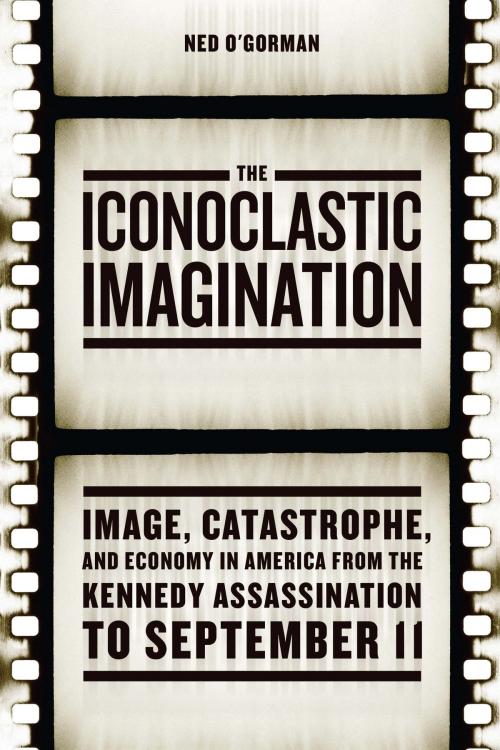The Iconoclastic Imagination
Image, Catastrophe, and Economy in America from the Kennedy Assassination to September 11
Nonfiction, Reference & Language, Language Arts, Communication, History, Americas, United States, 20th Century| Author: | Ned O'Gorman | ISBN: | 9780226310374 |
| Publisher: | University of Chicago Press | Publication: | November 10, 2015 |
| Imprint: | University of Chicago Press | Language: | English |
| Author: | Ned O'Gorman |
| ISBN: | 9780226310374 |
| Publisher: | University of Chicago Press |
| Publication: | November 10, 2015 |
| Imprint: | University of Chicago Press |
| Language: | English |
Bloody, fiery spectacles—the Challenger disaster, 9/11, JFK’s assassination—have given us moments of catastrophe that make it easy to answer the “where were you when” question and shape our ways of seeing what came before and after. Why are these spectacles so packed with meaning?
In The Iconoclastic Imagination, Ned O’Gorman approaches each of these moments as an image of icon-destruction that give us distinct ways to imagine social existence in American life. He argues that the Cold War gave rise to crises in political, aesthetic, and political-aesthetic representations. Locating all of these crises within a “neoliberal imaginary,” O’Gorman explains that since the Kennedy assassination, the most powerful way to see “America” has been in the destruction of representative American symbols or icons. This, in turn, has profound implications for a neoliberal economy, social philosophy, and public policy. Richly interwoven with philosophical, theological, and rhetorical traditions, the book offers a new foundation for a complex and innovative approach to studying Cold War America, political theory, and visual culture.
Bloody, fiery spectacles—the Challenger disaster, 9/11, JFK’s assassination—have given us moments of catastrophe that make it easy to answer the “where were you when” question and shape our ways of seeing what came before and after. Why are these spectacles so packed with meaning?
In The Iconoclastic Imagination, Ned O’Gorman approaches each of these moments as an image of icon-destruction that give us distinct ways to imagine social existence in American life. He argues that the Cold War gave rise to crises in political, aesthetic, and political-aesthetic representations. Locating all of these crises within a “neoliberal imaginary,” O’Gorman explains that since the Kennedy assassination, the most powerful way to see “America” has been in the destruction of representative American symbols or icons. This, in turn, has profound implications for a neoliberal economy, social philosophy, and public policy. Richly interwoven with philosophical, theological, and rhetorical traditions, the book offers a new foundation for a complex and innovative approach to studying Cold War America, political theory, and visual culture.















